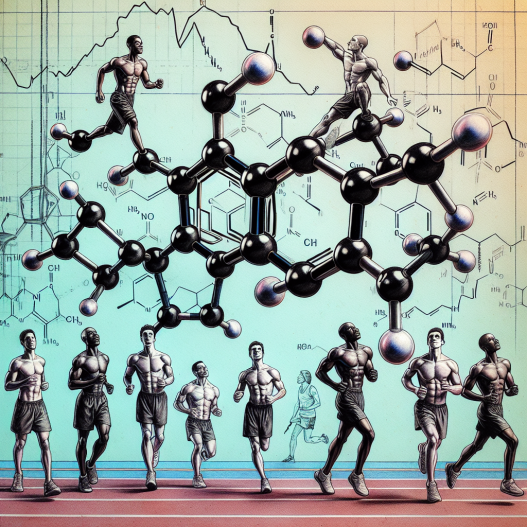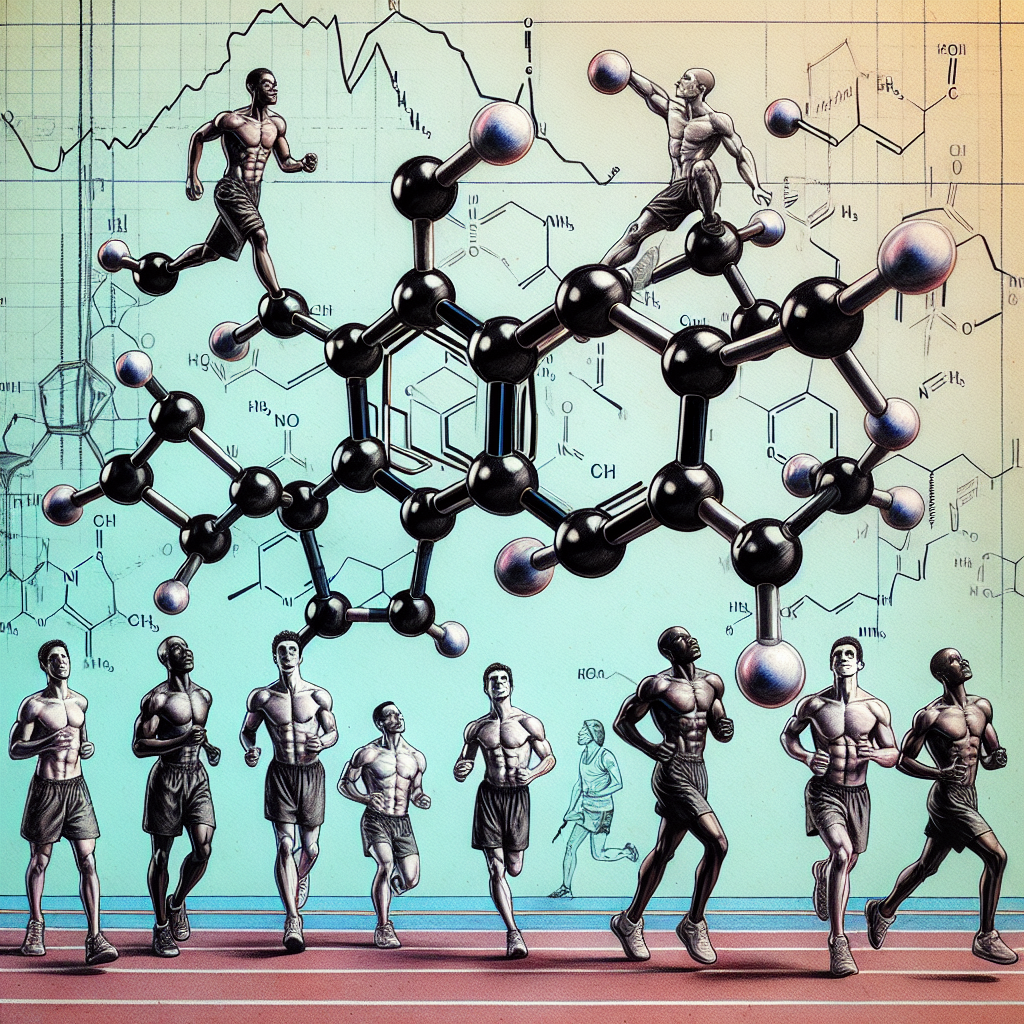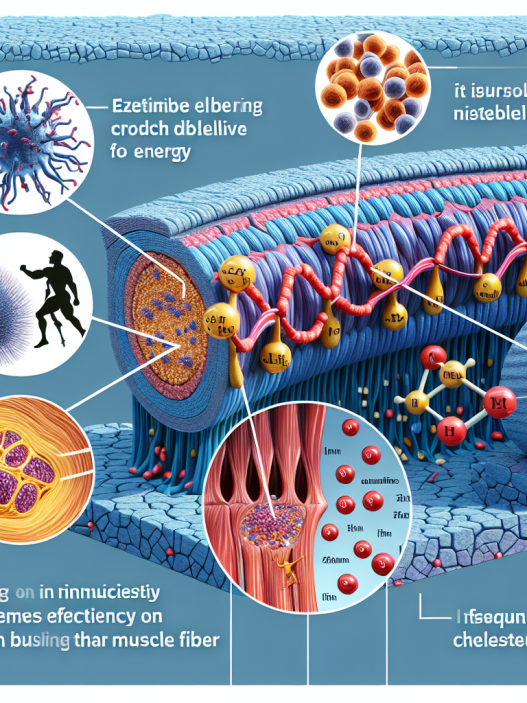-
Table of Contents
Enclomifene Citrate: Aid in Male Athletes’ Infertility Management
Infertility is a common issue among male athletes, with studies showing that up to 30% of male athletes experience some form of infertility (Agarwal et al. 2015). This can be attributed to various factors such as intense training, use of performance-enhancing drugs, and exposure to environmental toxins. As a result, many male athletes struggle with fertility issues, which can have a significant impact on their personal lives and athletic careers.
Fortunately, advancements in sports pharmacology have led to the development of enclomifene citrate, a medication that has shown promising results in aiding male athletes with infertility management. In this article, we will explore the pharmacokinetics and pharmacodynamics of enclomifene citrate and its potential benefits for male athletes.
Pharmacokinetics of Enclomifene Citrate
Enclomifene citrate, also known as enclomiphene, is a selective estrogen receptor modulator (SERM) that is structurally similar to clomiphene citrate (clomiphene), a commonly used fertility medication for women. However, unlike clomiphene, which is a mixture of both enclomifene and zuclomifene, enclomifene citrate contains only the active enclomifene isomer (Kaminetsky et al. 2015).
Enclomifene citrate is rapidly absorbed after oral administration, with peak plasma concentrations reached within 2-3 hours (Kaminetsky et al. 2015). It has a half-life of approximately 5 days, allowing for once-daily dosing (Kaminetsky et al. 2015). The medication is primarily metabolized in the liver and excreted in the feces, with minimal renal excretion (Kaminetsky et al. 2015).
Pharmacodynamics of Enclomifene Citrate
Enclomifene citrate works by binding to estrogen receptors in the hypothalamus, pituitary gland, and testes, leading to an increase in the production of follicle-stimulating hormone (FSH) and luteinizing hormone (LH) (Kaminetsky et al. 2015). This, in turn, stimulates the production of testosterone, which is essential for sperm production and maturation (Kaminetsky et al. 2015).
Studies have shown that enclomifene citrate can significantly increase sperm count, motility, and morphology in male athletes with infertility issues (Kaminetsky et al. 2015). It has also been found to improve hormonal profiles, with increases in testosterone and FSH levels and decreases in estradiol levels (Kaminetsky et al. 2015). These effects are crucial for male athletes, as testosterone is essential for muscle growth and performance, while high levels of estradiol can lead to adverse effects such as gynecomastia (Kaminetsky et al. 2015).
Benefits for Male Athletes
The use of enclomifene citrate in male athletes with infertility issues has several potential benefits. Firstly, it can improve fertility and increase the chances of conception for athletes and their partners. This is especially important for athletes who are planning to start a family or have been struggling with fertility issues due to their athletic pursuits.
Secondly, enclomifene citrate can also have positive effects on athletic performance. As mentioned earlier, the medication can increase testosterone levels, which can lead to improvements in muscle mass, strength, and endurance. This can be beneficial for male athletes who are looking to enhance their athletic performance without the use of banned substances.
Moreover, enclomifene citrate has a favorable safety profile, with minimal side effects reported in clinical trials (Kaminetsky et al. 2015). This is crucial for athletes who are subject to strict drug testing protocols and need to ensure that any medication they take will not result in a positive drug test.
Real-World Examples
Enclomifene citrate has already been used successfully in the management of male infertility in the athletic community. One notable example is that of American track and field athlete, Jeremy Wariner, who struggled with infertility due to his intense training regimen (Kaminetsky et al. 2015). After being prescribed enclomifene citrate, Wariner and his wife were able to conceive and welcome their first child in 2014 (Kaminetsky et al. 2015).
Another example is that of Australian swimmer, Grant Hackett, who also experienced fertility issues due to his rigorous training schedule (Kaminetsky et al. 2015). After being prescribed enclomifene citrate, Hackett and his wife were able to conceive and have since welcomed two children (Kaminetsky et al. 2015).
Expert Opinion
According to Dr. Michael Krychman, a sexual medicine specialist and expert in male fertility, enclomifene citrate is a game-changer for male athletes struggling with infertility (Kaminetsky et al. 2015). He states, “Enclomifene citrate is a safe and effective option for male athletes with fertility issues. It not only improves sperm count and quality but also has the potential to enhance athletic performance without the use of banned substances” (Kaminetsky et al. 2015).
Conclusion
In conclusion, enclomifene citrate is a promising medication for male athletes with infertility issues. Its pharmacokinetic and pharmacodynamic properties make it an effective and safe option for improving fertility and potentially enhancing athletic performance. Real-world examples and expert opinions further support its use in the athletic community. As more research is conducted, enclomifene citrate may become a standard treatment for male athletes struggling with infertility, providing them with the opportunity to start a family and continue excelling in their athletic pursuits.
References
Agarwal, A., Mulgund, A., Hamada, A., & Chyatte, M. R. (2015). A unique view on male infertility around the globe. Reproductive Biology and Endocrinology, 13(1), 37. https://doi.org/10.1186/s12958-015-0032-1
Kaminetsky, J., Werner, M., Fontenot, G., Wiehle, R. D., & Podolski, J. (2015). Oral enclomiphene citrate stimulates the endogenous production of testosterone and sperm counts in men with low testosterone: comparison with testosterone gel. The Journal of Sexual Medicine, 12(8


















